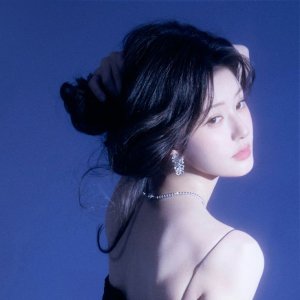It is, as expected, great!
Taking my time to savor "I Lost You Forever" proved to be a well-judged decision. While I anticipated enjoying it, the strategic delay heightened my appreciation, leading me to want to share my thoughts now.
This drama unfolds like a tapestry. This isn't a result of veering off course or losing direction but rather due to the fluid changes in scenarios and the intermittent introduction and departure of characters outside the main quartet. This dynamic approach, while invigorating, makes the story feel longer than it is, which, fundamentally, isn't a negative aspect.
Undoubtedly, the standout feature of this drama is its characters. The majority of them radiate an exceptional sense of authenticity. Each character possesses an irresistible charm coupled with unforgiving flaws, navigating actions that alternately endear and exasperate, reflecting not poor writing but a genuine depiction of human complexities.
Despite the political storyline's crucial role in the final episodes, the narrative retains its character-driven essence, so I feel it is only fair to have a discussion of the four main characters.
Xiaoyao's character is a truly captivating focal point of the narrative. Initially introduced as a man and maintaining this identity for a significant duration, her complexity adds a unique layer to the story. Strikingly, she manages to be simultaneously likable and polarizing, creating a multifaceted appeal that solidified my adoration for her as a central character. Delving extensively into Yang Zi's performance almost feels unnecessary – her portrayal in this role is nothing short of phenomenal. Consistently compelling from the beginning to the end, Yang Zi brings a depth and authenticity to Xiaoyao that is undeniably convincing.
Cangxuan didn't immediately capture my favor in the initial episodes, but over time, I found myself warming up to him. His narrative intertwined with Xiaoyao adds a compelling dimension, challenging conventional expectations of the male lead. Zhang Wanyi's portrayal matches Yang Zi's excellence, contributing significantly to the seamless execution of their interconnected stories.
On the flip side, Tushan Jing emerges as the narrative's Achilles’s heel, showcasing vulnerabilities both in writing and acting. Initially established as a fair enough character, he falters significantly as the story unfolds. His indecisiveness and weakness, despite hailing from one of Dahuang's most influential families, present a stark contrast to the greatness attributed to him. While the hardships he faced in the past are acknowledged, they fail to fully explain the extent of his character shift.
Deng Wei's portrayal of Tushan Jing, though not abysmal, falls noticeably short compared to the other three. His limited range of facial expressions and lack of nuance became wearisome after about 25 episodes. As the main love interest, his on-screen chemistry with Yang Zi lacks conviction, making their romantic moments feel unconvincing.
Lastly, Xiang Liu. It's an understatement to label him merely as my favorite. Tan Jianci consistently exceeds expectations, proving to be the unparalleled choice for bringing Xiang Liu to life. This character, with its profound complexity and layers, posed a substantial challenge, one that Tan Jianci masterfully conquered. His expressions transcend the ordinary, evoking palpable emotions that leave me both connected and perplexed by the intricacies of his character.
Xiang Liu's love for Xiaoyao is evident, yet his actions defy predictability. He's capable of extraordinary feats for her, yet equally inclined towards unexpected choices. Will he go to extremes to protect her, or might he lead her into unforeseen challenges? The uncertainty surrounding his character adds a magnetic allure, keeping me on the edge of anticipation.
Eagerly anticipating the second part of this compelling story, I can only hope it maintains its current breathtaking quality. While aware that it will not unfold as I wish (I can feel it), the prospect of the unknown journey ahead is both intriguing and exciting.
This drama unfolds like a tapestry. This isn't a result of veering off course or losing direction but rather due to the fluid changes in scenarios and the intermittent introduction and departure of characters outside the main quartet. This dynamic approach, while invigorating, makes the story feel longer than it is, which, fundamentally, isn't a negative aspect.
Undoubtedly, the standout feature of this drama is its characters. The majority of them radiate an exceptional sense of authenticity. Each character possesses an irresistible charm coupled with unforgiving flaws, navigating actions that alternately endear and exasperate, reflecting not poor writing but a genuine depiction of human complexities.
Despite the political storyline's crucial role in the final episodes, the narrative retains its character-driven essence, so I feel it is only fair to have a discussion of the four main characters.
Xiaoyao's character is a truly captivating focal point of the narrative. Initially introduced as a man and maintaining this identity for a significant duration, her complexity adds a unique layer to the story. Strikingly, she manages to be simultaneously likable and polarizing, creating a multifaceted appeal that solidified my adoration for her as a central character. Delving extensively into Yang Zi's performance almost feels unnecessary – her portrayal in this role is nothing short of phenomenal. Consistently compelling from the beginning to the end, Yang Zi brings a depth and authenticity to Xiaoyao that is undeniably convincing.
Cangxuan didn't immediately capture my favor in the initial episodes, but over time, I found myself warming up to him. His narrative intertwined with Xiaoyao adds a compelling dimension, challenging conventional expectations of the male lead. Zhang Wanyi's portrayal matches Yang Zi's excellence, contributing significantly to the seamless execution of their interconnected stories.
On the flip side, Tushan Jing emerges as the narrative's Achilles’s heel, showcasing vulnerabilities both in writing and acting. Initially established as a fair enough character, he falters significantly as the story unfolds. His indecisiveness and weakness, despite hailing from one of Dahuang's most influential families, present a stark contrast to the greatness attributed to him. While the hardships he faced in the past are acknowledged, they fail to fully explain the extent of his character shift.
Deng Wei's portrayal of Tushan Jing, though not abysmal, falls noticeably short compared to the other three. His limited range of facial expressions and lack of nuance became wearisome after about 25 episodes. As the main love interest, his on-screen chemistry with Yang Zi lacks conviction, making their romantic moments feel unconvincing.
Lastly, Xiang Liu. It's an understatement to label him merely as my favorite. Tan Jianci consistently exceeds expectations, proving to be the unparalleled choice for bringing Xiang Liu to life. This character, with its profound complexity and layers, posed a substantial challenge, one that Tan Jianci masterfully conquered. His expressions transcend the ordinary, evoking palpable emotions that leave me both connected and perplexed by the intricacies of his character.
Xiang Liu's love for Xiaoyao is evident, yet his actions defy predictability. He's capable of extraordinary feats for her, yet equally inclined towards unexpected choices. Will he go to extremes to protect her, or might he lead her into unforeseen challenges? The uncertainty surrounding his character adds a magnetic allure, keeping me on the edge of anticipation.
Eagerly anticipating the second part of this compelling story, I can only hope it maintains its current breathtaking quality. While aware that it will not unfold as I wish (I can feel it), the prospect of the unknown journey ahead is both intriguing and exciting.
Esta resenha foi útil para você?







